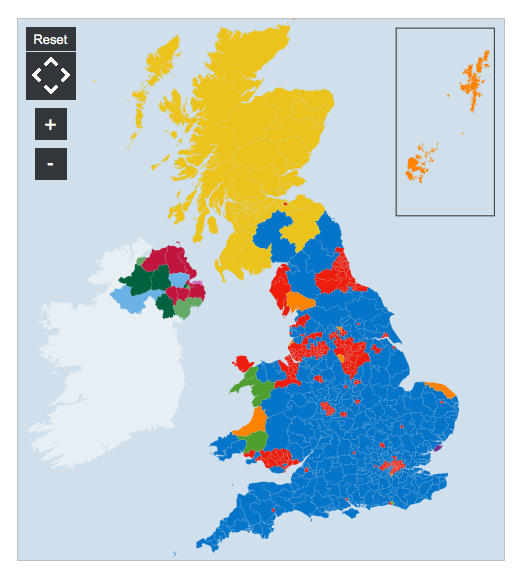Is Academisation Undemocratic?
As could have been predicted, there are a lot of people who are angry about mass academisation. The last time I saw the word privatisation this many times in a day, I was reading about Thatcher for an essay. If that isn’t 1980s enough, some people are threatening to flee the country and go live abroad, mimicking celebrity reactions to the idea of Labour being elected. Mary Bousted is tweeting every bit of the white paper that she thinks is ridiculous. The NUT are going to fight academisation to the death (or near enough).
There’s a petition which has over 100,000 signatures. People power to the rescue? There will have to be a debate about a public inquiry into academising all schools. Nevermind that there was going to be a debate about the white paper regardless.
In EduTwitterWorld revolution is in the air but how educators from EYFS to Higher Education are going to manage it given their breathtaking lack of understanding of the British political and electoral systems, is beyond me.
Here’s a guide from an ex-political scientist.
UK Population: 63 million
Electorate: The exact number who are eligible to vote depend on who is eligible to vote and this differs (see: https://www.whatdotheyknow.com/request/total_number_of_registered_voter).Before anyone spots a conspiracy theory – actually go ahead – if the trains heading to Paranoia Central I’m not going to stop it reaching it’s destination.
The BBC’s election 2015 website stated 46 million (http://www.bbc.co.uk/news/election/2015/results) however it’s not clear if this is registered or eligible voters.
Electoral System:
“It’s not fair – we need PR”
Well there have been many attempts to reform the electoral system – see https://en.wikipedia.org/wiki/Electoral_reform#United_Kingdom for a quick overview. It is worth noting that demands for PR usually come from those whose party have lost the election and really don’t like the party who won. It is rare that such arguments are made when one is happy with the results, government or policy being implemented. Neither has the electorate penalised any of the political parties for failing to introduce electoral reform.
“Not enough choice. They’re all the same”
Sigh – will come to this later.
“But the Conservatives don’t represent the country they only won a minority of votes”
Indeed they got 36.9% of the vote share but crucially in a first past the post system it is winning constituency seats that matter. They did get a majority – with 331 seats overall.


Is it unfair? Let’s look at the 1945 election in comparison:

Your eyes are not deceiving you – the Labour Party won a majority of seats with a minority of the overall votes. Yep – just like the Conservatives in 2015.
47.7% is better than 36.9% I grant you, but still a minority of the votes and any argument that hinges on a government needing a majority of the votes applies here too. The turnout was better but not by much 72.9 % compared to 67.7%. Still roughly a third of voters did not vote in either election.
“The majority did not vote for the Conservatives or their policies”
The majority of those (registered or eligible) to vote in 1945 did not vote for the NHS, the system of welfare benefits for the sick and unemployed, free secondary education for all, nationalisation of industries or full employment.
Now if you are Labour and you have a beef at the moment, then the Conservatives in 1945 would have had an even bigger one – they won 36.2% of the vote compared to Labour’s 30.4% in the last election. Oh I know the Corbynites think that they have the third of voters who didn’t vote in the bag but proof of the pudding is putting x’s on ballot papers.
“But it’s not in their manifesto – no one voted for it”
Well here’s the Labour Party manifesto from 1945. There are many things the Labour Party did in their term of office, including maintaining rationing, that were not in the manifesto. Manifestos are rarely adhered to in their entirety, usually because circumstances influence what you can implement.
“But they should stick to their manifestos.”
Should they? In which case the Conservatives should not have agreed to fly in 20 000 refugees – wasn’t in their manifesto.
“That’s different”
Remarkable how it always is.
“Attlee was different, he ran the government for the whole country”
Well it’s clear from the fact that a welfare state was introduced that he didn’t give a fuck about the overall percentage of votes, the opposition or those who did not vote. Neither did he worry about representing the entire nation’s views.
If you don’t like first past the post, fine. You live in a country where you can do something about it. If you think that you can only choose from the main political parties then let me show you the 2015 results again.

Even the stoneheads managed to get their act together, started up Cannabis is Safer than Alcohol and stood some candidates. All political parties start somewhere.
Democracy does not lead to utopia. It involves compromise. It involves putting up with the occasional government you don’t like. It involves the implementation of policies that you will not always agree with. If you think the Conservatives are evil incarnate so be it. I think I have a greater claim than most on having been adversely affected by the Conservative governments in the 1980s – but they are not on a par with undemocratic regimes I studied and spent years writing essays about.
First Past the Post may not be ideal for some but PR systems ultimately have winners and losers too and their own lists of pros and cons.
The anomalies of the first past the post system have existed for a long time. Change it by all means but retrospectively delegitimising governments because they are not to your liking does not wash.
The 2015 elections were free and fair (fair in the way they were held rather than fair to you personally and if that is patronising – well I am doing my best here in the face of what is utter ignorance of the system we live in, it’s history and evolution over time).
Personally, I would rather have an imperfect democracy – Conservative government and all – than exist under the dicatatorship of the self-appointed righteousnous police made up of educationalists (who think votes only count if cast by people they agree with for MPs they want in parliament).
And if I am going to live in a dicatorship then of course I want it to be to my liking and sure as hell not yours!



March 21, 2016 @ 5:33 pm
Reblogged this on The Echo Chamber.
March 21, 2016 @ 6:08 pm
I think P.R. has one cultural benefit that is not often recognised: those countries that have forms of it predicate their entire system on the need to compromise – but that shifts the emphasis from entrenched disagreement to areas where agreement can be found. That is what we witnessed under the Coalition. This is quite a profound shift of mind set from the current British system and I believe ultimately precipitates a shift in outlook well beyond the political scene.
Too many of this country’s problems have been caused by constant U turns of policy as governments alternated. And too much of the wider debate (including in education) is couched in terms of entrenched and often vicious disagreement, a bunker mentality, rather than attempts to find consensus.
As someone who taught ‘A’ Level European Studies and who visited the European Parliament on numerous occasions, it was all too obvious how much the culture differed. I know which one I think is more constructive.
March 21, 2016 @ 6:19 pm
You can say that but PR without safeguards is not healthy – can’t discount the Nazi experience. Neither can one pretend that it doesn’t give more of a platform to extremist parties. As for meeting in the middle – that’s happened i British politics anyway – Butskillism in the 1950s, the arguments about Conservatives and Labour not being different enough. It is about compromising internally which could be argued is more honest than horsetrading. It might be acceptable to have the Liberal Democrats in Coalition – would you say the same thing about UKIP? BNP? SWP? (Why do far left/right parties end up as acronyms…?). Also in PR systems the party list can lead to no link between constituency and MP. I just think there are real arguments for and against but what can’t be argued is that we have an undemocratic system (majority of seats rather than votes is a valid choice).
March 21, 2016 @ 6:34 pm
I didn’t think I was saying that. Your point is valid, depending on which set of numbers you happen to prefer. I would have thought a truly democratic system would have the ability to change its system if it chose, and I suppose we do/did – though whether referenda are really representative is a moot point… I was merely suggesting that a more consensus-based system does have real advantages for stability, continuity, reasoned debate and general stress levels!
March 21, 2016 @ 7:45 pm
I happen to like STV – it was used in Ireland and it maintains the link between the constituency and MP but it means that you get to state ordinal preferences for other candidates. It still has the problem of not necessarily giving the governing party the majority of the votes.
March 21, 2016 @ 7:56 pm
I think we can agree on that!
March 21, 2016 @ 7:42 pm
I don’t think I disagree with you but….
In the cold light of a twittering day, first past the post is what we have, like it or not. But, I think it’s true to say that, despite the government’s mandate to create and reform law, the right to dispute bills before they become set in stone is a crucial part of the democratic process. The government turning on itself is a case in point with the issues around cutting disability payments. Has this forced a rethink? Just saying, there is a process and there are many hurdles to navigate when bills go through both houses….pressure groups and filibustering aside, isn’t everyone just exercising their right to shout about something they fundamentally disagree with? I don’t really know the ins and outs of disability allowance, but I can make up my mind about the fairness or otherwise of what this government is trying to do. It’s got nothing to do with ‘The System’.
March 21, 2016 @ 7:55 pm
I agree with you on all counts!
The taking in of 20 000 refugees was based on a petition and a swell of support for it. I think that’s a good example of the government responding to people who aren’t their supporters necessarily.
It’s my totalitarian/anti-democracy alarm going off (I blame Orwell!). But the basis for opposing the policy is important. I came across the argument that because the cabinet have been to private school they aren’t entitled to make policy – it’s insane. We can’t discount the votes of tens of thousands of people for an MP because of which school he went to!!
Not Waving But Drowning – Teachwell
March 22, 2016 @ 6:31 pm
[…] argued that the ability to mass academise schools is not undemocratic, I read this today from @dutaut – here where he argues that it is not undemocratic but […]